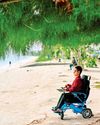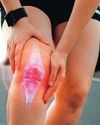As the Citizenship Bill clears Lok Sabha, northeast allies begin to desert the BJP.

ON JANUARY 3, Prime Minister Narendra Modi was in Silchar, his second stop for the day in the northeast, as he launched the BJP’s campaign for the upcoming Lok Sabha elections. Silchar is a small town in upper Assam, inhabited largely by refugees who came from Bangladesh in 1947 and during the 1971 war.
Addressing a rally in Silchar, Modi announced that his government would try and pass the Citizenship (Amendment) Bill, 2016, immediately. It would confer citizenship to Buddhists, Jains, Sikhs, Christians and other non-Muslims from Bangladesh, Afghanistan and Pakistan, whose names were missing from the National Register of Citizens (NRC) in Assam. After the NRC’s latest revision, nearly 40 lakh people were left out, of which six lakh were from Silchar.
Following Modi’s announcement, the Asom Gana Parishad, a member of the National Democratic Alliance, announced its decision to pull out of the coalition government in Assam. The AGP said it did not expect Modi to make such a crucial announcement even before the joint parliamentary committee had submitted its report. AGP president Atul Bora said his party was leaving the coalition. “We thought the prime minister would not act in haste,” he said. “I had met the prime minister and the home minister several times. They assured us that they would look into the issue. But they stabbed us in the back.”
The AGP came to power in the 1980s, riding on the support of the indigenous people of Assam. AGP founder Prafulla Kumar Mahanta signed the Assam Accord in 1985, which brought peace to the ethnically-torn Assam. Under the accord, all illegal immigrants from Bangladesh who entered India after March 1971 were to be sent back. The accord called for the setting up of an NRC in Assam. The AGP and its allies are angry that the new bill is against the letter and spirit of the accord.
This story is from the January 20, 2019 edition of THE WEEK.
Start your 7-day Magzter GOLD free trial to access thousands of curated premium stories, and 9,000+ magazines and newspapers.
Already a subscriber ? Sign In
This story is from the January 20, 2019 edition of THE WEEK.
Start your 7-day Magzter GOLD free trial to access thousands of curated premium stories, and 9,000+ magazines and newspapers.
Already a subscriber? Sign In

Walking in pine forest can have the same effect as a prescription drug
INTERVIEW - KATHY WILLIS, professor of biodiversity, the University of Oxford, and author, Good Nature

MORE THAN A HELPING HAND
Maria Victoria Juan spent a lifetime healing wounded soldiers, and she can't think of anything she could have done better

Against all odds
Mohamed Raishan Ahmed was born with spinal muscular atrophy, which made him unable to sit, stand or walk. Recently, the Maldivian underwent a rare, complex surgery in India that now allows him to sit upright. At 23, the fact that he is alive is in itself an achievement. But he has gone beyond mere survival-with a pursuit of excellence

A pacemaker tale
From science fiction to reality, with a touch of southern Indian wisdom

Driving safe
Taxi drivers endure gruelling hours, cramped seats and relentless traffic, making them prime candidates for health issues like back pain, hypertension, diabetes and insomnia.

Good food, good life
From the moment of birth, we establish a relationship with food—a nourishing link that requires care and attention to stay healthy

POOR SLEEP IN MIDLIFE COULD AGE YOUR BRAIN FASTER
PEOPLE WHO EXPERIENCE SLEEP ISSUES, such as difficulty falling asleep or staying asleep in their 40s, may show more signs of brain ageing in late midlife. Poor sleep may accelerate brain atrophy that is associated with dementia.

BRAIN SCANS SHOW MINDFULNESS MEDITATION CAN REDUCE PAIN
CAN MINDFULNESS MEDITATION actually relieve pain, or is it just a placebo effect?

NON-SURGICAL OPTION TO EASE KNEE ARTHRITIS
A NEW, MINIMALLY INVASIVE procedure called genicular artery embolisation (GAE) can effectively reduce pain, improve quality of life and reduce progression of the disease and the need for knee replacement surgery in people with knee osteoarthritis.

EARLY ONSET DIABETES, BELLY FAT LINKED TO DEMENTIA
FACTORS SUCH AS DIABETES and belly fat in midlife can put you at risk of dementia and Alzheimer's disease later in life.